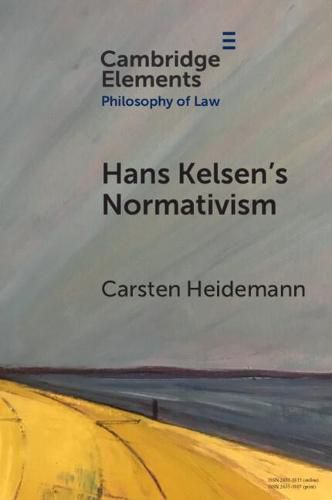Readings Newsletter
Become a Readings Member to make your shopping experience even easier.
Sign in or sign up for free!
You’re not far away from qualifying for FREE standard shipping within Australia
You’ve qualified for FREE standard shipping within Australia
The cart is loading…






Hans Kelsen’s Pure Theory of Law is the most prominent example of legal normativism. This text traces its origins and its genesis. In philosophy, normativism started with Hume’s distinction between Is- and Ought-propositions. Kant distinguished practical from theoretical judgments, while resting even the latter on normativity. Following him, Lotze and the Baden neo-Kantians instrumentalized normativism to secure a sphere of knowledge which is not subject to the natural sciences. Even in his first major text, Kelsen claims that law is solely a matter of Ought or normativity. In the second phase of his writings, he places himself into the neo-Kantian tradition, holding legal norms to be Ought-judgments of legal science. In the third phase, he advocates a barely coherent naive normative realism. In the fourth phase, he supplements the realist view with a strict will-theory of norms, coupled with set-pieces from linguistic philosophy; classical normativism is more or less dismantled.
$9.00 standard shipping within Australia
FREE standard shipping within Australia for orders over $100.00
Express & International shipping calculated at checkout
Hans Kelsen’s Pure Theory of Law is the most prominent example of legal normativism. This text traces its origins and its genesis. In philosophy, normativism started with Hume’s distinction between Is- and Ought-propositions. Kant distinguished practical from theoretical judgments, while resting even the latter on normativity. Following him, Lotze and the Baden neo-Kantians instrumentalized normativism to secure a sphere of knowledge which is not subject to the natural sciences. Even in his first major text, Kelsen claims that law is solely a matter of Ought or normativity. In the second phase of his writings, he places himself into the neo-Kantian tradition, holding legal norms to be Ought-judgments of legal science. In the third phase, he advocates a barely coherent naive normative realism. In the fourth phase, he supplements the realist view with a strict will-theory of norms, coupled with set-pieces from linguistic philosophy; classical normativism is more or less dismantled.